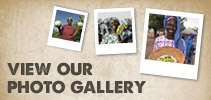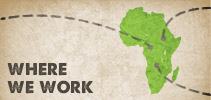Building community structures in Darfur
North Darfur, Sudan, is an area affected by drought and conflict and more often associated with humanitarian aid than long term development processes. However, since 1998, communities have been mobilising to reduce their vulnerability and increase their self-reliance.
Villages or groups of women set up Village Development Committees (VDC), or Woman’s Development Associations (WDA) to plan and manage their development activities. There are now about 130 of these committees in the El Fashir District, of which around 50 were set up spontaneously – when people in other villages heard about the VDCs/WDAs and wanted to establish them in their own villages. As the number of VDCs and WDAs has increased, networks have been established (VDC Net and WDA Net) to bring together the experiences of the individual organisations and to develop new projects, train new committees, seek funding, and negotiate with national and international agencies. As conflict in the region has escalated, the importance of local management and ownership of development activities has come to the fore – development activities can continue even if it is increasingly dangerous for outsiders to travel in the region. The WDAs currently have about 25,000 individual members and the VDCs cover about 38,000 households, or about 20 per cent of the region’s population.
The VDCs and WDAs manage a range of participatory technology development activities and encourage members to reflect on the problems they face and the cause and effect linkages within their socio-political and agro-ecological situation. Such reflections then become the basis for setting new priorities and selecting appropriate responses. Activities include encouraging farmer experimentation in sustainable agricultural practices, improving provision of grain storage (which helps stabilise local grain prices and provide a safety net for the poor) and supporting local extension agents and paravets to provide affordable advice and services. Women have been trained in food processing techniques, improving family nutrition and opening up new market opportunities. Many of the WDAs have constructed their own centres, which they manage themselves. These act as a focal point for their activities and give them a new-found status in their communities.
The networks have linkages with traditional and local government institutions. They are gradually increasing in confidence and self-reliance and have been able to approach decision-makers and lobby for resources. For example, the North Darfur State Forest Corporation has supported the establishment of two community nurseries in El Fashir and the Ministry of Animal Resources in North Darfur has given official recognition to the work of paravets. The Darfur networks have raised over $1 million from UN agencies to support their development initiatives. Setting up community structures has empowered people to determine their own future by influencing decisions that affect their lives.
For more information, please contact Practical Action (www.practicalaction.org.uk).



